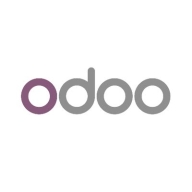

Odoo and Salesforce Essentials compete in the business solutions category, with each offering unique strengths. Odoo appears to have an advantage in affordability and open-source flexibility, appealing largely to smaller businesses, while Salesforce Essentials shines in CRM capabilities, making it suitable for businesses focused on customer relationships.
Features: Odoo provides a flexible ERP solution with numerous modules like CRM, inventory, and payroll that enhance functionality. Its open-source nature and strong community support allow for extensive customization and integration. Salesforce Essentials delivers robust CRM features, combining Sales Cloud and Service Cloud for comprehensive customer interaction management. Its AI capabilities support customer segmentation, and being cloud-based, it facilitates easy deployment.
Room for Improvement: Odoo users seek better reporting capabilities, improved third-party app integration, and stronger technical support. There's also a need for enhanced scalability and dashboard features. Salesforce Essentials faces issues with integration complexity and high costs. Enhancements in user interface and AI functionalities, alongside more affordable licensing options, are desired by users.
Ease of Deployment and Customer Service: Odoo offers deployment flexibility with various cloud and on-premises options, benefiting from an open-source framework despite moderate technical support. Users note delays in support response. Salesforce Essentials leverages public cloud deployment, ensuring straightforward implementation and mobility. It provides reliable customer support but entails higher service extension costs, with a call for improved user guidance.
Pricing and ROI: Odoo is recognized for its cost-effectiveness, with flexible licensing options and lower costs than competitors. It offers strong ROI due to reduced manual labor and rapid deployment. In contrast, Salesforce Essentials is seen as expensive, with a higher investment needed for customization and integration, impacting ROI despite its advanced CRM capabilities. Odoo is viewed as more accessible and better priced.
Currently, I manage those tasks independently, which is a significant cost-saving measure for my small business.
Technical support from Odoo is available and eager to help.
Salesforce Essentials has excellent customer service.
I rate the scalability of Odoo as eight to nine out of ten.
Stability is very important because any software that supports your business must be available consistently.
Salesforce Essentials has proven stable, with no downtime that affects my work.
Odoo's documentation needs improvement, as there are areas that are not well-documented.
There are other competitors, like Zoho CRM, that offer similar features at a lower cost.
The pricing for Odoo is affordable, with the solution being significantly cheaper than its competitors like SAP, Microsoft, and Oracle.
The costs associated with Salesforce Essentials are substantial, which is a drawback compared to competitors who offer similar services for less.
All modules in Odoo are integrated together, providing seamless transitions across various functionalities.
Salesforce Essentials is excellent because it is one of the most flexible CRMs available.


Odoo is a suite of open source business apps that cover all your company needs: CRM, eCommerce, accounting, inventory, point of sale, project management, etc. Odoo's unique value proposition is to be at the same time very easy to use and fully integrated.
Salesforce Essentials is a cloud-based CRM tool for businesses seeking flexible, scalable, and customizable solutions to enhance sales and customer support processes.
Designed for seamless integration across multiple channels, Salesforce Essentials includes Sales and Service Cloud to simplify sales tasks and customer management. It enhances finance, credit, and quality processes with user-friendly AI capabilities and predictive analytics. Despite its strengths, there is room for improvement in SAP integration, interface simplicity, and report generation. Cost-effectiveness and support for diverse languages are also potential upgrade areas. Businesses use this CRM solution for lead management, opportunity tracking, and automating sales workflows, transitioning from paper-based methods to digital efficiency.
What are the essential features of Salesforce Essentials?In the retail industry, businesses employ Salesforce Essentials for customer data management and transparency in order processing. Healthcare providers use it for patient engagement and streamlined communication. Financial services utilize it for billing management and compliance, harnessing automation tools for efficient data handling.
We monitor all CRM reviews to prevent fraudulent reviews and keep review quality high. We do not post reviews by company employees or direct competitors. We validate each review for authenticity via cross-reference with LinkedIn, and personal follow-up with the reviewer when necessary.